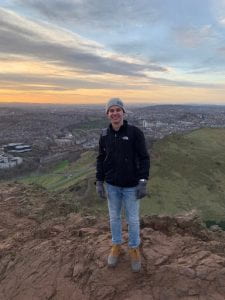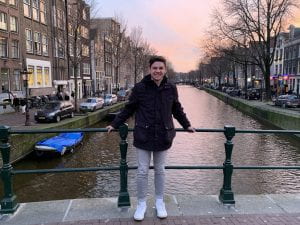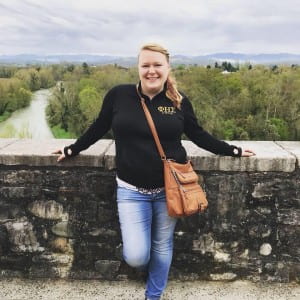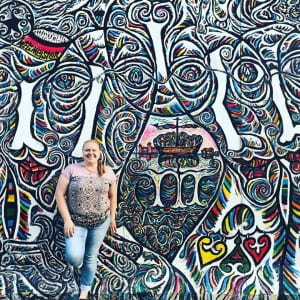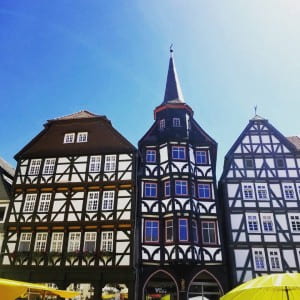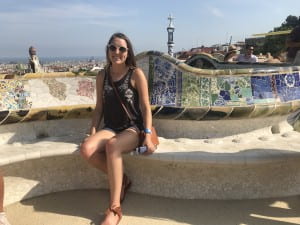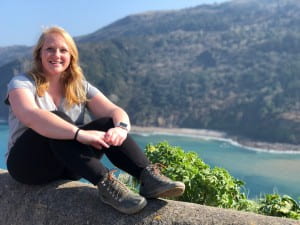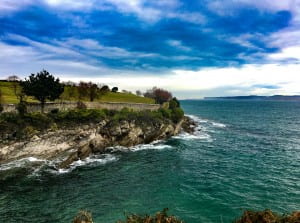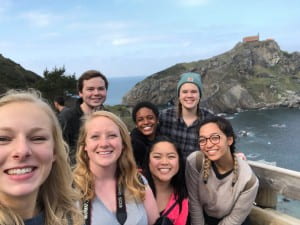
Name: Alexander Alberts
Majors: Accounting, Finance, German
Year in School: Senior
Program: Goethe Universitaet – Frankfurt am Main, Germany
Why did you choose to study abroad?
Improvement of my language ability in German was definitely the main reason why I chose to study abroad. I initially went to Germany being very fluent in the language, and left with even better abilities than before. It was a great opportunity to put my language skills to the test, and really use them in a daily setting.
Why did you choose to go where you did?
I was always very interested in German culture and history. Many tumultuous events took place in Germany over the last hundred years, and it was fascinating to see these locations first hand. As stated above, I am also a fluent German speaker, so I wanted to spend my time abroad in a country where German was spoken and where I had the opportunity to use the language every day. Germany is also in my opinion the most beautiful country in the world!
What’s the best part about studying abroad? Favorite experience?
The best part about studying abroad is definitely the people who you will come in contact with, and the friendships you will make. Traveling was really great, but my fondest memories from my time in Germany were definitely made just spending time with my friends in Frankfurt. I had the opportunity to become friends with people from all over Europe, Luxembourg, Czech Republic, Finland for example. The cultural exchange we had was incredible. We could chat about any topic in such a constructive way, and bring so many perspectives to the table, it was fantastic! We went on many trips together, and had such an amazing time taking in what Frankfurt and Germany have to offer. My favorite memory from abroad was definitely a trip I took with my friends to Europapark in Rust, Germany, where we spent the entire day in the beating sun riding roller coasters. The park is definitely a recommendation for anyone planning on visiting Germany!
What did you struggle with? How have you overcome it?
The bureaucratic system in Germany definitely caught me by surprise. Germany in general is known to have a lot of very strict rules, that are enforced with no room for exceptions. I do not think this could be more true than when looking at their school system or registration system. For example, there was a single 30 minute time slot weekly where you were able to pick up your university ID, which was required to take public transportation, do laundry, and buy food. If you missed that time slot for some reason, you had to wait an entire week to get your card. I also found there to be a lack of customer service, not just in restaurants, but also in almost all consumer settings. It just seemed like they did not have a desire to satisfy you as a consumer, and rather you were at the full mercy of the service provider. These are definitely things I missed about the United States while abroad. The school system is also intense! You only take one exam at the end of the semester, so intensive studying is a must. Most of the tests are designed for students to either barely pass or fail, while our tests in the US tend to be more oriented at allowing students who strive to get a good grade, the ability to do so. This means yours grades will most likely be lower during your semester in Germany, but that does not mean you did anything incorrectly. It simply mirrors the differences in the two school systems. This definitely proved to be a challenge for me, but you always have to remind yourself that your time abroad is not just about your studies, but also about the many experiences you have that you will cherish for a lifetime.
 What advice do you have for those who want to study abroad?
What advice do you have for those who want to study abroad?
My advice to students who would like to study abroad is definitely to take the risk and spend an entire year abroad, and not just a semester. They always told us at various study abroad events that that was the one regret of almost all returning students, that they did not spend more time abroad, and it could not be more than true. Once I returned to the United States, I almost instantly missed my life in Germany. You will definitely not regret spending the extra time in a foreign country. I also would advise future study abroad students to avoid American students during their time abroad. One of the best parts of my study abroad experience was coming in contact with German and International students, and fostering such a strong intercultural exchange. Sure it is tempting to spend time with people who speak perfect English, but your time abroad will be so much more fulfilling when you go the extra mile to avoid English, and speak the native language of your respective country instead. The really cool part is when you return to the United States and you can barely speak English, that is when you know you had a great time abroad!
How has studying abroad personally helped you?
Studying abroad has helped me tremendously to develop my organizational and interpersonal skills, as well as my confidence. Organization was key to surviving the semester at the Goethe Uni in Frankfurt. With 48,000 students, it was hard to find resources that would help you to succeed, so you really needed to learn to rely on your own personal ability to remain organized and keep deadlines in check. Interpersonal skills were also very important. You needed to learn how to communicate ideas in a new way, as language presented itself often as a barrier, rather than an effective communication method. You also needed to pay attention to the fact that everyone comes from a different background, and that you needed to remain open to new ideas and ways of looking at things. My confidence definitely improved drastically while abroad as well. I was often challenged to overcome demanding tasks in German, such as setting up a bank account, buying health insurance, and registering at the foreign office. All of which required the confidence to delve into a challenging conversation in a foreign language and still be able to leave having completed the task at hand. I also acquired the confidence necessary to reach out to fellow students and peers to explore Frankfurt. Germans are typically very cold and not so friendly, and often I needed to be the one to take the first steps in building a relationship with other people. This is much different than what I was used to in the United States. You also acquire the courage to step out of your comfort zone and try new things. I left the United States with a fear of rollercoasters, and after a trip to Europapark in Rust, Germany, I left a complete thrill seeker. Sometimes you will discover things you love, such as Doener Kebab (one of the best things you will ever eat) and other times you may realize a popular food item or activity is not for you, in my case sushi. The most important thing is to keep an open mind, and to try and do things that you would never do at home.
What are the differences between your home country and the country you are studying in?
Germans in general do not tend to question the system. It is common in the United States to look at things critically, for example, why are our drinking laws so strict when it comes to drinking in public? Germans on the other hand tend to take things how they are, and do not seem to have a desire to question why things are the way they are. They seem apprehensive when it comes to perhaps breaking a rule, even if the rule seems senseless.

In Germany, time is looked at very differently. It seemed like everyone was always looking on their subways apps for connections, and what time different trains arrived. I feel that Germans are always on the go, and planning out their routes way in advance, even if a train travels every three minutes.
Germany has an interesting mix of security and personal freedom. For example, Germans enjoy a very laid back drinking culture, while at the same time banning certain forms of what we would see as free speech, such as some internet streaming services. They also have a plethora of state institutions that play a role in almost all facets of life. This is much different than in the United States, where we tend to put more emphasis on personal freedoms and personal responsibility, rather than relying on government to provide security to us.
Public transportation plays a larger role in Germany than in the United States. In order to get to school everyday, I had to take the U-Bahn, which is the German subway. It was definitely quite a bit different, and a lot more interesting than driving a car.
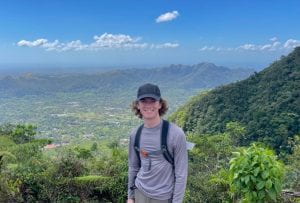
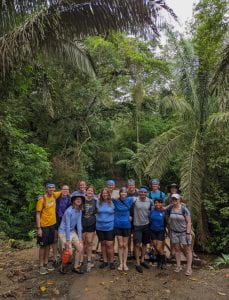
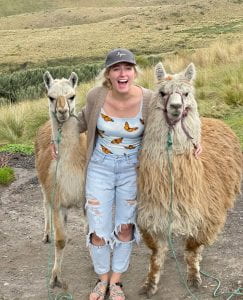



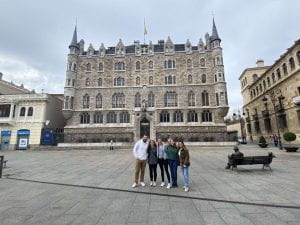 Free tapa (appetizer/small plate) with a drink at a bar
Free tapa (appetizer/small plate) with a drink at a bar
